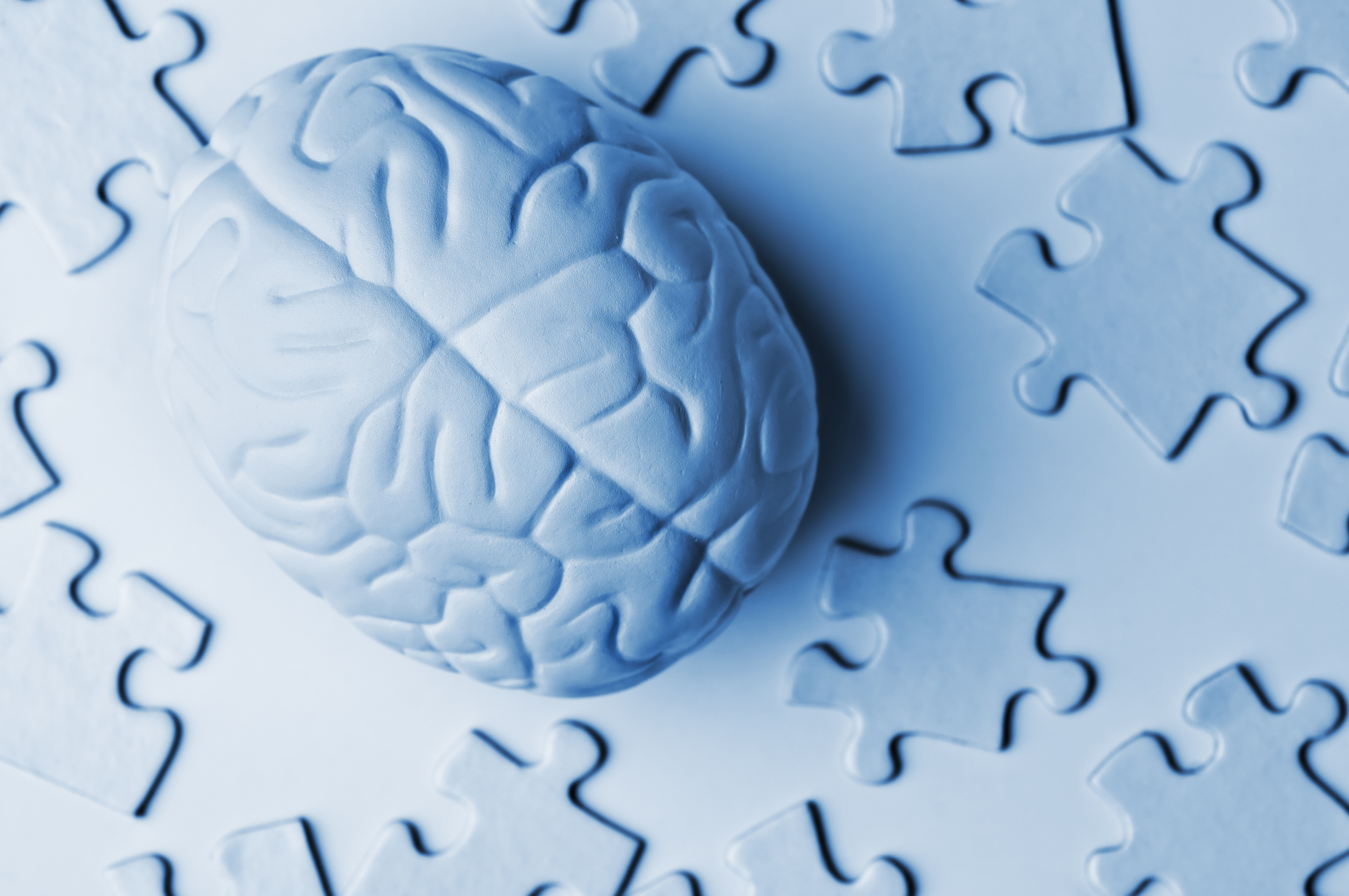After a recent death in the family, a friend asked me, “Would you rather die from a physical cause such as a heart attack, or face a mental decline with Alzheimer’s Disease?” It was an awful decision to make, and it dawned on me, does it have to be either one?
There is a great deal of focus in the wellness world on physical fitness, but still very little on mental fitness. As someone who is in perfect health, but has a family history of neurodegenerative disorders on both sides, this is an area I am passionate about researching. In my job as a Director of Spa and Wellness, I’m also passionate about sharing what I learn with guests. The Rancho Valencia Wellness Collective is based on the science of epigenetics (the study of biological mechanisms that will switch genes on and off), and I love the feeling of empowerment this science creates, just knowing that potentially 95 percent of disease is preventable through lifestyle.
The latest research shows that it is possible to grow and strengthen your brain through exercises, creating cognitive fitness. After all, humans have both a physical age and a mental age. The goal of these exercises is to improve longevity, and decelerate mental aging. The brain has an amazing ability to change and adapt based on the “exercises” it is given.
I’ve been profoundly inspired by a wonderful book called Boost Your Brain, by Majid Fotuhi, M.D. Ph.D. In the book, he talks about the “Core Four” ways to grow your brain: Build synapses, bolster the brain’s highways, nourish and grow blood vessels, and promote the development of neurons. Fotuhi discusses how a bigger brain is critical to peak mental fitness in three main ways: improving memory, clarity and creativity.
Cognitive stimulation helps the hippocampus (which plays a major role in learning and emotions) grow, and increases levels of BDNF (brain-derived neurotrophic factor), a critical protein in the formation of long-term memory.
A larger network of connectivity (synapses, neural highways, blood vessels and neurons) in the brain improves creativity, and the ability to solve abstract problems in the cortex, the area of the brain where higher cognition takes place.
Our Wellness Collective is based on the most impactful lifestyle factors for preventing disease, and I was overjoyed in my research to learn how beneficial they are to preventing cognitive decline as well. Here are some key microsteps that we use in my own work, and how you can adapt them at home to improve your own cognitive fitness:
Exercise
Exercise has many preventative benefits, from increasing BDNF to improving blood and oxygen flow to the brain.
Myelin is an insulating sheath around the axon of the neuron, which increases the speed at which messages are conducted. Oxygen is essential to the helper cells which keep the myelin intact. Physical exercise boosts oxygen flow to the brain and optimizes these highways.
Exercise also helps create new mitochondria, which help fuel the growth of new cells, synapses and small blood vessels.
To experience the benefits yourself, strive to get at least 30 minutes of blood-pumping cardio five days per week, and five to fifteen minutes of strength training three days per week. You can also get the benefits of cognitive exercise by playing puzzles such as Sudoku, crosswords, and board games involving strategy.

Building community
Fotuhi likens social interaction combined with exercise to “cross-training,” since it doubles the cognitive stimulation benefits. At Rancho Valencia, our goal is to create a community feel, with ample occasions for social connections. We do that with activities like pickleball, group fitness classes, social gatherings, wellness workshops, and other group activities. I get most excited when I see the added cognitive fitness bonus of someone making a new connection while also experiencing something new, like a crystal grounding grid, or yoga with sound healing! Learning a new activity and challenging the brain creates new synapses and neural pathways.
In your own life, focus on building community to experience the same brain benefits. Invite neighbors over for a potluck, frequent your local farmer’s market, bake more than you think your own family will need and share with neighbors, or try volunteering. I also love Meetup.com for both meeting new people and trying new things.
Get perspective
In my work, we invite our guests to pause and intentionally bring joy into each day. That’s something everyone can benefit from. This simple practice can alter brain activity, and create an automatic positive response to life challenges. Studies show that just thinking about happy times boosts serotonin levels in the brain. Serotonin is essential for the proper functioning of your prefrontal cortex, which governs self-reflection and the regulation of emotions, helping it to override old negative patterns.
Try this yourself. Put life in perspective by focusing on what you can control rather than dwelling on what you cannot. By practicing choosing a positive reaction, it will become your natural response. Focus on having an open mind and an attitude of curiosity about the world.
Sleep
Sleep is prime time not only for the repair processes of the body, but also for memory consolidation. Poor sleep shrinks the hippocampus and leads to unhealthy decisions in other areas such as choosing junk food and skipping a workout. Sleep-deprived people also tend to have higher stress levels and tense relationships. Are you seeing how this is all interrelated?
To improve your own sleep quality, keep your bedroom dark and cool. Unplug an hour before bed, as bright light is one of the biggest triggers to our brains that it’s time to be awake and alert. And practice deep breathing exercises such as Pranayama to balance the autonomic nervous system and calm the mind.
Nurture your body with quality nutrition
Plant-based foods may help slow cognitive decline. To boost your brain, choose foods rich in vitamin K, lutein, folate and beta carotenes, such as spinach, carrots, sweet potatoes, and leafy greens.
Foods containing flavonoids, such as berries and apples increase blood flow to the brain, boost BDNF, and create new nerve cells.
Omega-3s, ideally from fatty fish or flaxseed oil, have been linked to lower blood levels of beta-amyloid, the toxic protein that creates synapse-damaging results in the brains of people with Alzheimer’s Disease.
Nuts such as walnuts and pistachios are rich in omega-3s as well. Pecans and pistachios also contain choline, which increases the memory-related neurotransmitter acetylcholine.
At Rancho Valencia, we focus on what we can do more of instead of deprivation. I think that’s a very important nutrition principle. If you slowly incorporate the foods above into your diet, you will be surprised at how easily this simple change can inspire other healthy actions.
Practice meditation
When we are stressed, our adrenal glands release cortisol, which is a natural response as part of the fight-or-flight mechanism. Persistent elevated brain cortisol level interferes with memory, raises blood pressure, and makes it more difficult to sleep. Chronic stress also causes neurons in the prefrontal cortex to shrink and lose connections and reduced BDNF levels.
Meditation can help, and it’s easy to get started. This practice strengthens the neural highways, creates more synapses, improves blood flow to the brain, increases the size of the hippocampus, and boosts BDNF.
Remember that your genetic makeup does not have to define your destiny. Even if a person inherits the APOE ε4, a risk-factor gene, it does not mean that a person will absolutely develop Alzheimer’s Disease. Simple, sustainable changes to your daily lifestyle and improved cognitive fitness can lead to optimal physical and mental performance. I remind myself of that often — empowerment is the key to a life well lived.
Resources:
- Boost Your Brain: The New Art and Science Behind Enhanced Brain Performance, Majid Fotuhi, Christina Breda Antoniades
- https://www.health.harvard.edu/mind-and-mood/foods-linked-to-better-brainpower
- https://www.alz.org/national/documents/topicsheet_betaamyloid.pdf
- https://www.nia.nih.gov/health/alzheimers-disease-genetics-fact-sheet


